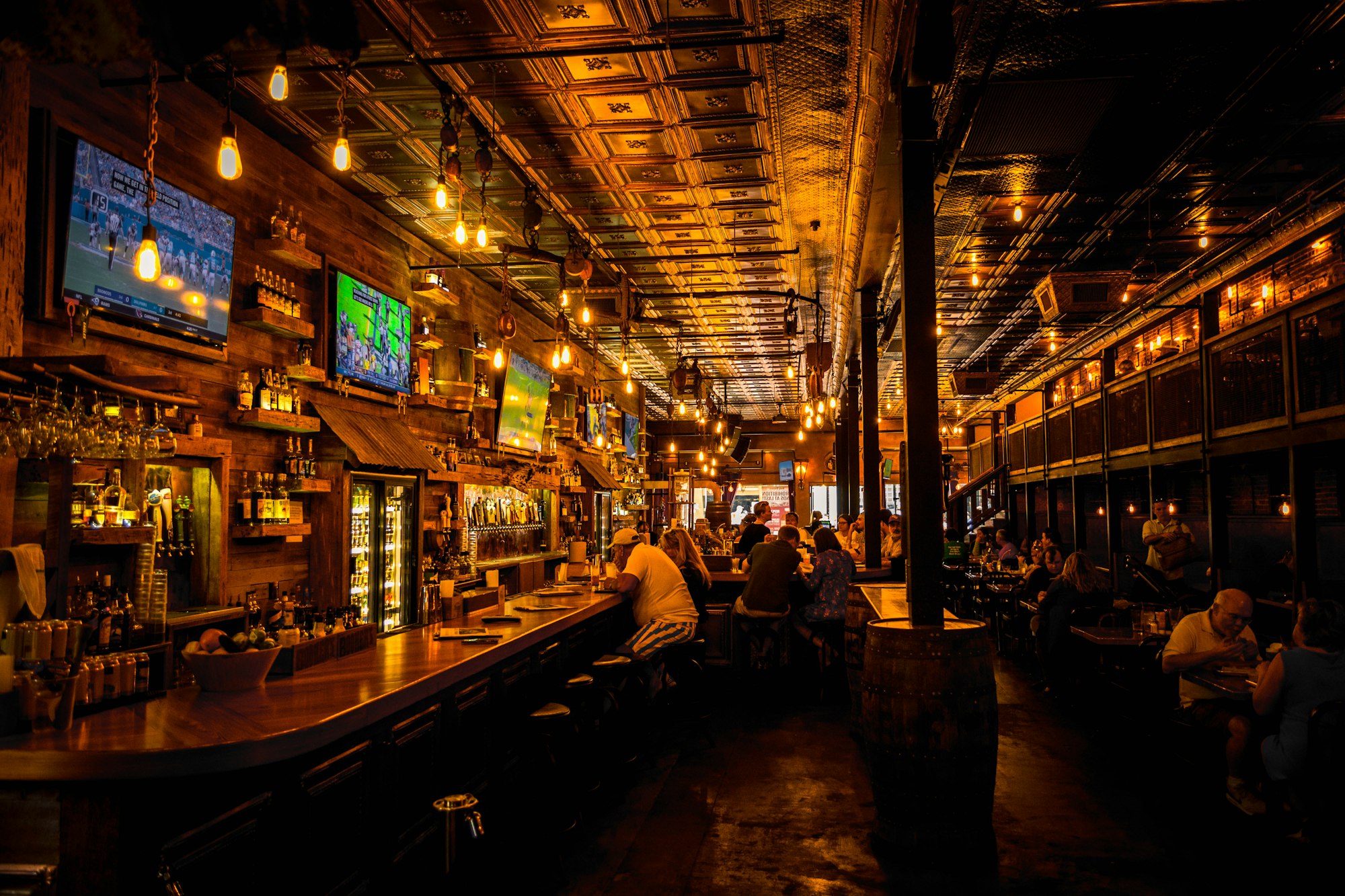NFT Nation
• 5 min read
Communities are built around third places
Meet Ladonia: a micronation with an online community. Though only a fraction of the declared citizens are within the declared geographic perimeter at any given time, they participate in governance and social customs in online forums year-round:

The above mentions an online community as a "third place": what is that?
The third place is the social surroundings separate from the two usual social environments of home ("first place") and the workplace ("second place").
Third places build communities over shared beliefs (churches), incidental geographical proximity (English pubs, American gangs, coffeehouses), or common socioeconomic/intellectual stratum (salons, university libraries, country clubs).

All revolve around shared traits incidentally tied to geography. Churches share religion; pubs share socioeconomic class; salons share intellect.

Ladonia is one example where the community has started physical but shifted digital; Burning Man is another. Though members from all around the world meet physically for a single week, regional networks gather and socialize as physical and digital "third places" throughout the year:

The real community-building often happens in third places: organizing events and camps, socializing, and bonding.
NFTs can take inspiration from Ladonia and Burning Man with one crucial difference: instead of starting physical and going digital, NFTs can coalesce digital strength and manifest physical presence last.
When DAO governance becomes DAO governments
Bits are interesting in that they can cause atoms to move differently:
What you find is there really isn’t this clear demarcation between bits and atoms anymore. Uber and Airbnb are great examples of this. Uber built and runs a software app. Things happen in a software app that affect the distribution of atoms in the real world.
If you think about it, there’s a magic to this. There’s a programmer at Uber who is typing in code right now. When he punches enter, all of a sudden hundreds of thousands of cars today are going to drive to places they wouldn’t have otherwise driven. Hundreds of thousands of drivers are going to drive and pick up passengers they wouldn’t have picked up before. The drivers, the cars, and the passengers are all made of atoms. You have software control the world in a lot of ways. You have code that then directly expresses itself in the real world and causes the real world of atoms to reorganize.
Marc Andreessen, Flying X-Wings into the Death Star: Andreessen on Investing and Tech
Currently, NFTs organize bits, but hold promise to organize atoms (people, resources, buildings) in unprecedented ways.
What would atomic NFT communities look like? My hypothesis, though it sounds crazy, is they start looking less like fan clubs and more like city states:
🏠 DAOs become HOAs. The NFT collectively will own and govern real estate; third places will go back to physical. NFT communities, funded by royalties from sales, are already renting out yachts; soon, they will own yacht clubs and entire buildings as third places for NFT holders.
🎫 Wallets become access passes. Coworking spaces/living spaces/hangout spaces will be gated by not just dollars, but token ownership and wallet activity (think DegenScore) to align values of the DAO and its members.
⛪️ Crypto communities become all-consuming. Players to guilds in RPGs are many-to-one, not many-to-many. With incentives for early joiners, for long-term hodlers, and for dedicated contributors, crypto communities converge to religion. Already on Twitter we see the fervor of Bitcoin maximalists and altcoin fanatics. We will see evangelists get rewarded for converts. As crypto figures out how to align financial and spiritual incentives, it becomes the new church.
📒 Prove dedication or GTFO. You prove your dedication through your contributions, referrals, and wallet activity. Where you spend your time and effort is all on-chain. Chain analysis quickly separates the missionaries from the mercenaries.
✈️ People relocate to their NFT community. The first Bored Ape neighborhood is near.
💰 NFTs compete for derivative value add and licensing revenue. Loot is the best example of this, where the token's value stems from being a focal point for derivative uses. This is similar to licensing revenue from sports merchandise.
🪙 Members earn through the DAO. You pool wealth with DAO members and earn income and voting rights proportional to your stake. The best DAOs will have an in-house Yearn or the DeFi equivalent of a Medallion Fund for members only.
🤝 Trust stretches only to the borders of the DAO, and breaches of trust will not go unpunished. Intellectual property will be shared openly intra-DAO (like at Rentec) and IP thieves will not be looked kindly upon (tradfi examples 1, 2). Additionally, those who dox will be in big trouble.
👩❤️👨 In-DAO dating. Zero-knowledge proofs can match dates match based on net worth, proof of alignment of values, governance votes, NFT ownership commonalities, etc. Imagine zkCupid.
🦾 The best DAO has a good defense. Commodity drones, the ML-ification of defense, and the unwillingness, inability, etc. of nations to defend its population result in DAOs investing in defense capabilities to protect its members and deter external aggression. Sounds insane, but well-equipped paramilitary organizations already exist.
To summarize, NFTs become the new CIPs (Citizenship Investment Programs). With NFTs, you don't buy pixels; you buy citizenship. Citizenship comes with benefits: defense, belonging, income, and space.
The above sounds insane, but perhaps we can frame it another way:
There are only two ways to make money in business: One is to bundle; the other is unbundle.
Thomas Jefferson famously unbundled church and state.
NFTs, with rabid fans, intense community, and deep pockets, promise to rebundle, and then tokenize, church and state.
NFTs begin as bits but later become bundles: our first places, second places, and third places--work, home, community--collapse into one place where we share our economic, spiritual, and physical existence with 10,000 of our best friends.